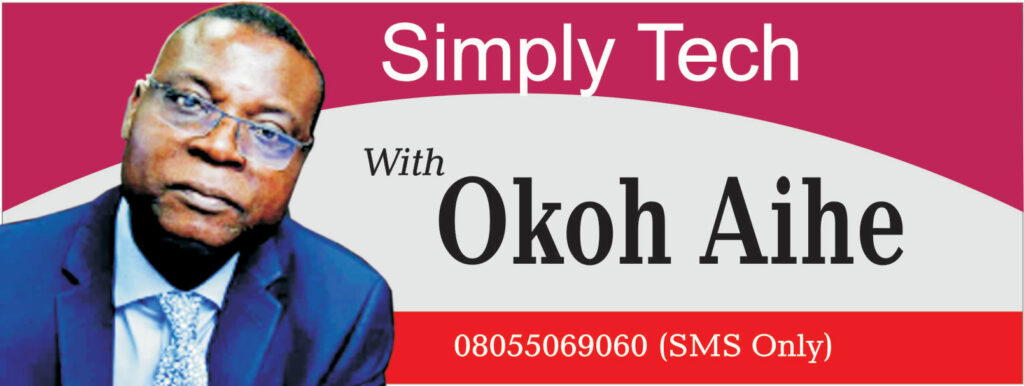

By OKoh Aihe
MY children still mock me when I tell them the first time I used a phone was when I was in my first year in the university. Like most of their colleagues, they may never understand why our world was like that, whether we were some kind of aliens trying to find reason in a world that was moving too fast for us to understand.
What they will be finding out now is that in our kind of country nothing is guaranteed, not even constitutional rights. Even the ones guaranteed under the Constitution are willfully taken away by those who play God.
A friend who belongs to the profession which says every other profession is unlearned apart from the one they practice, schooled me on Monday morning when he told me that in some countries of the world, like the United States and part of the Scandinavian countries, telecommunications service is a fundamental right which permits the people to take legal action when denied.
In Nigeria it was never so, and it is not so now. So I would only use phone for the first time while in the university and, in fact, the statement that telephone was not for the poor was made at about that time by a certain man who has been frolicking around the seat of power since then.
This is why I feel myself obligated today, as we huddle down the path of 5G, to say something about the National Carrier Licence operators who are supposed to provide a bouquet of telecommunications services in the country. It is the responsibility of the national carrier to provide service backbone for other operators and even carry their signals where they don’t have capacity to offer services.
The 5G auction is scheduled to hold in December and entry price is pegged at $197,400,000. Meaning that if the country is as welcoming as officials of government trumpet it to be, a lot of 100MHz in 3.5GHz band, ranging from 3700 to 3800MHz could cost twice that amount.
Two lots are being put in the market and obviously a lot of activities are expected in the industry in the days ahead. So much is expected of 5G. Some say it will help data speed. It will open up new opportunities. It will transform the economy. In fact, it will help fight terrorism. The 5G is being positioned as a silver bullet. But it is not.
A conversation with another friend of mine inspired this story. His question was simple and very direct. What happened to your national carriers, he inquired. He knew the answer but was really just stirring up a conversation that wouldn’t put the nation in good light because of some actions not taken.
Let me pay tributes to those who superintended the industry from year 2000. NITEL was the formal national carrier and monopoly. After the GSM auction, the operator was given reserved GSM licences without going through the throes of the bid.
The regulator actually thought of a special place for NITEL and how to preserve its legacy, and goaded it to use its mammoth facilities to service the industry and make money for its services. But NITEL refused to fly and indeed would not invest fresh funds to play its role as industry bride in the new dawn.
One smart thing, however, is that NITEL was formally licensed by the Nigerian Communications Commission, NCC, and that brought the service provider under the authority of the regulator.
NITEL was a behemoth which among other infrastructure had the mobile, GSM, arm, SAT-3, CDMA network, domestic fixed line telephony, national fibre-optic transmission backbone and analogue system and various switches across the country. November 1, 2002 and September 1, 2002, respectively, Nigerian Telecommunications Ltd with offices at Plot 251, Herbert Macaulay Way, Central Business District, Abuja and Globacom Limited with offices at Mike Adenuga Close, Victoria Island, Lagos, were awarded their National Carrier Licences. They should build enough infrastructure to support and expand services in the industry and ensure that people have access to fixed services, among others.
The National Carrier Licences held by the two operators will expire by November 1, 2022. This is barely a year away. Are we going to have another ritual of licence renewal without looking at the records of achievements so far?
If you permit a return to the matter of 5G, the auction will be done in December except there are intervening factors to decide otherwise. The operators will roll out services, but in the cities where their services can be afforded. Investment is going to be heavy. So, services will also be pricey. Beyond the euphoria the ordinary guy will find himself in the margins of relevance and consideration for consumption of niche technology.
Technology should be about deployment and usage. That hasn’t happened. So, it should be a return to the roots where it all began to see why pervasive telecoms services are really not working in Nigeria, at least, not in the manner of involving the ordinary fella in the ecosystem. This is why time has come for the regulator to interrogate its processes and stare at truth forcefully in the eyes.
The NCC should do a health check for the entire telecommunications industry to determine what is working – no shadow boxing, no pretences about the state of the industry, because from all indications some measures have not yielded fruits. What is the state of the INFRACOS expected to build telecom infrastructure in different parts of the country with some subvention from the regulator?
What does the industry need to make services available to the mass of the people? How well are the operators doing and why indeed are some of them not doing well? What further role does the regulator have to play in dressing up the industry for further investments?
There is the Universal Service Provision Fund, USPF, that has served as some kind of honey to different people in government. The USPF is a global industry practice which money is used mainly to take services to the underserved areas. In Nigeria, USPF has had a history; but has time not come to review that history and then take a deserving decision to really use the money on behalf of the people?
There are some operators who are able to move into some estates with services that enable their subscribers to have access to phone services, data and TV. Oh, the old triple play. How are they doing it? Should we not study their model for a more expansive use?
The truth is that some things are not working. We need to confess this reality in order to begin to resolve the litany of problems confronting the industry and those who genuinely desire good telecom services. This is the time to lay assumptions to rest and let government and regulator know where they have erred as critical stakeholders of the industry.
The post National Carrier Licence: Lest we forget appeared first on Vanguard News.
0 Commentaires